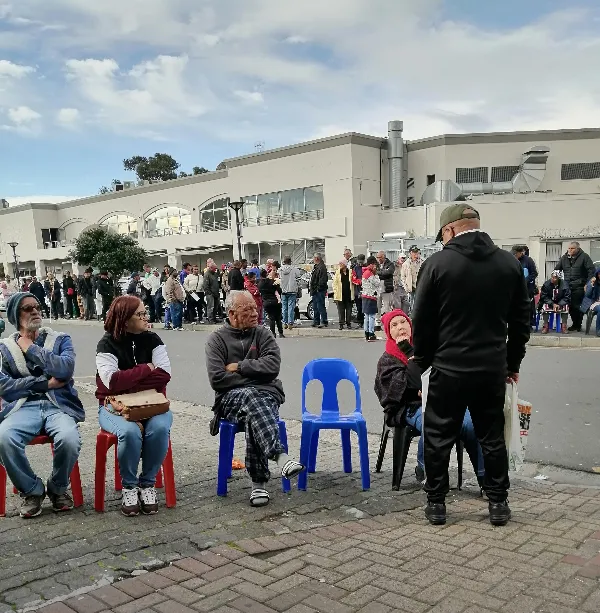Black Sash criticises SASSA's review process, jeopardising social grant beneficiaries

Black Sash has slammed the ongoing social grant recipient verification process, which it says has resulted in elderly individuals and people with disabilities having to wait in long queues over unpaid social grants.
Image: Supplied
Civil society organisation fighting for the rights of social grant recipients, Black Sash, has slammed the South African Social Services Agency (SASSA) for its "unfair" review process, which has resulted in the flagging of more than 200,000 social grant beneficiaries who could lose out on their social grants.
On Monday, SASSA CEO Themba Matlou revealed that his department has identified over 200,000 social grant beneficiaries who have failed to disclose their income accurately. SASSA spokesperson, Paseka Letsatsi, stated that some of the recipients have deliberately falsified their documents.
Matlou warned grant recipients to come clean about additional income or risk losing their support, saying the ongoing process is part of a legal requirement under Section 14(5) of the Social Assistance Act, which obliges beneficiaries to notify SASSA of any significant changes in their financial or personal circumstances.
In April 2025, the agency announced scheduled payment delays for targeted social grant beneficiaries who are required to visit local offices to confirm changes in their financial circumstances and update personal details.
''This step was taken following collaboration with registered Credit Bureaus, which flagged approximately 210,000 beneficiaries as receiving income that had not been truthfully disclosed,'' he said.
Black Sash accused SASSA of approaching this matter in a manner that lacks transparency and fairness, with Black Sash's advocacy manager, Hoodah Abrahams-Fayker, stating that the organisation has noted the briefing delivered by SASSA's Matlou.
"While we appreciate the attempt to explain the legal framework and rationale behind the reviews, the reality for grant recipients on the ground tells a far more troubling story - one that cannot be brushed aside by semantics, administrative language, or internal justifications. We acknowledge that SASSA has a legal obligation to ensure the integrity of the social assistance system and conduct reviews as prescribed by the Social Assistance Act. However, this does not absolve the agency from its constitutional duty to ensure procedural fairness, transparency, and dignity in how these reviews are carried out," said Abrahams-Fayker.
Black Sash has indicated that, despite the CEO’s claim that no grants have been suspended, the organisation has been inundated with calls from social grant recipients whose grants have been negatively affected by this process.
"We are witnessing a surge in complaints from beneficiaries who have been cut off without a clear explanation or notification. Our community monitoring teams, based across the country, and our national helpline have been overwhelmed with distress calls from elderly persons, people with disabilities, and caregivers, many of whom only discovered their grants had been 'flagged' when their money failed to appear. This was further exacerbated by the impact of bank verification checks on Older Persons’ grants, which also impacted grant payment delays and added to the fear, confusion, and queues at SASSA local offices," Black Sash said.
Black Sash has also indicated that many grant beneficiaries, particularly in rural and peri-urban communities, have limited access to phones, network connectivity, digital platforms, or updated contact details, which SASSA themselves have acknowledged.
"Black Sash has consistently called SASSA out on its poor communication strategy, and bulk communication in a short time does not address the issue of beneficiaries not receiving their grants within a reasonable time in a way that SASSA can constitute adequate notice confirming that the beneficiary has been informed. The state has to provide reliable, direct, and accessible communication and not to shift the blame onto those who are most excluded from formal systems," she said.
siyabonga.sithole@inl.co.za
Related Topics: